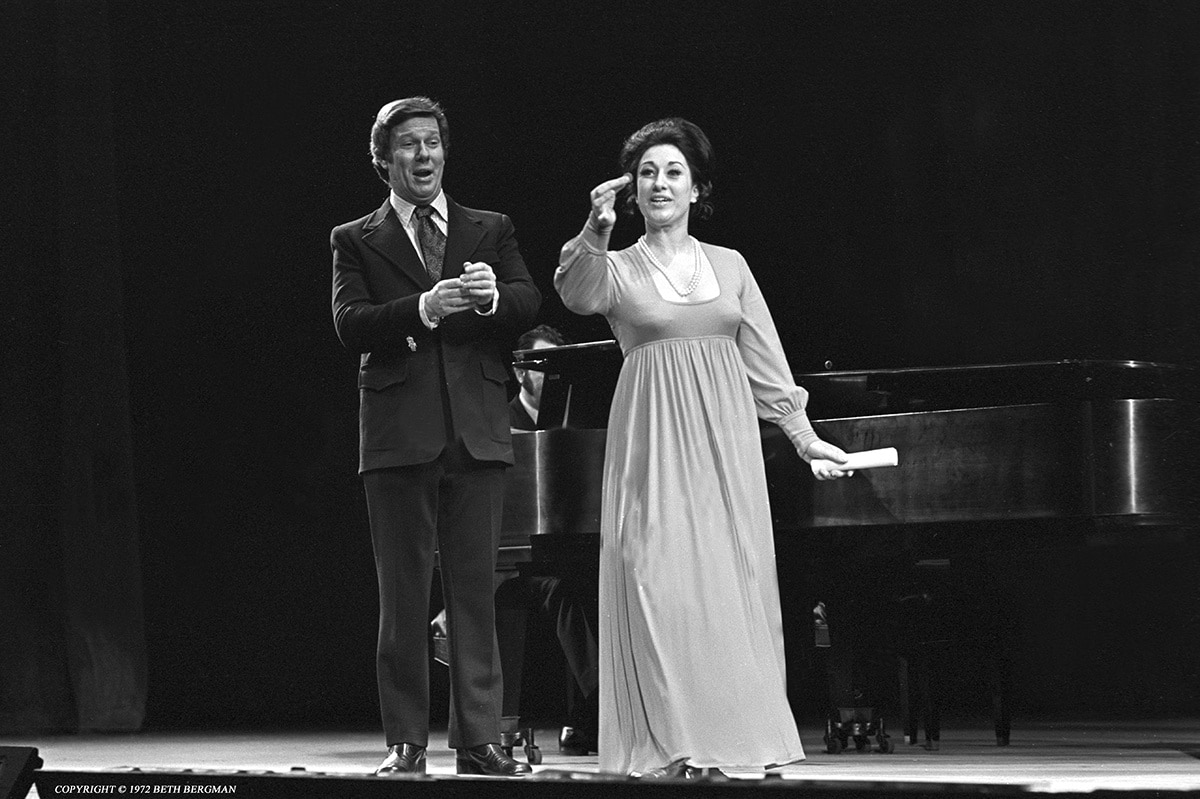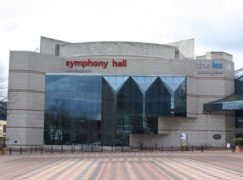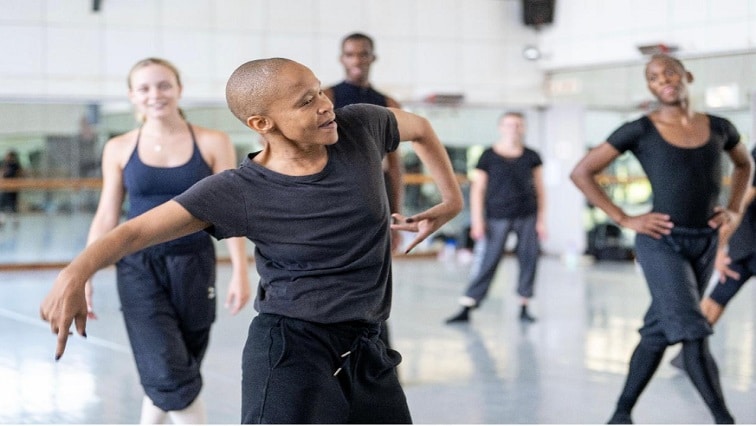Barenboim's cognitive dissonance
mainMost musical responses, public and private, to my discussion of religious anomalies in Daniel Barenboim’s Diwan orchestra have taken a markedly hostile tone.
Several professional musicians argued that religious faith should have nothing to do with the process of making music. ‘A majority of Israeli musicians just like most of their international colleagues have no time for religion,’ is how one London violinist put it to me in an email. He, and others, go on to assert that ‘the world would be a better place without religion.’
He is entitled to that view, and can claim support from the spirit of the times whether in science or the arts. It is cool to be an atheist in the 21st century. In recent Lebrecht Interviews with Jonathan Miller and Stephen Hough, it was the God-denying director who was more certain in his convictions than the God-seeking pianist.
Whatever one’s personal beliefs, however, all musicians ought to be aware that without religion there would be no music for them to play. It was the church that laid the foundations for symphonic music and a search for God that led most of the great composers to write as they did. Beethoven may have been anti-authority and Verdi anti-clerical, but with the lone exception of Richard Wagner it is hard to find a major composer before the 1918 who actively denied the existence of God and was not driven to compose by a religious impulse.
It is, of course, possible to separate between a composer’s intentions and the interpretation of music, but to assert that religion is irrelevant or detrimental to the art exposes what the mid-20th century psychologist Leon Festinger called ‘cognitive dissonance’ and Freud referred to much earlier as Das Unheimlich – the uncanny.
Both mean the same thing: a discomfort felt by someone grappling with two contradictory ideas. The therapeutic ‘solution’ is either to find a balance between the ideas or to rationalise one of them out of the picture. That seems to be what post-religious musicians are doing in relation to the faith basis of their art. It is not a viable intellectual position.
As far as the East-West Diwan orchestra is concerned, the cognitive dissonance is the inbuilt imbalance between a multiculturalist respect for Islam and a liberal contempt for those who observe the religious heritages of Judaism and Christianity. Fiona Maddocks argued justly that this inequality needs to be addressed. I would add that a resolution of the dissonance is essential if the Diwan is ever to have more than a decorative, symbolic and largely sentimental role in the search for a Middle East peace.





Norman, where would you place atheist soloists who just happen to produce truly great performances of Bach, Beethoven, Schubert et al? The logical conclusion of your argument would appear to be that you can’t give a great performance of a work if you don’t share its religion inspiration. The spirituality of music, though, goes way beyond religious observance to something far more profound and personal. Many of the finest soloists I’ve met have no time for traditional religion whatsoever, but they do respond in the core of their beings to the vein of spirituality behind the works, effectively making art into their own religion. I can’t see how the mere outward symbols of traditional religious observance are remotely relevant to music-making, since often they are only skin deep. Music deserves better than that and I’m glad that it frequently gets it.
NL replies: Jess, that’s a different argument altogether. How an interpreter reshapes a pieces according to his or her personality and beliefs is one of the everlasting joys and mysteries of the musical process. But it is not the same as creation, which is a specific and original form of expression that, if it were not true to the convictions of the creator, would be a travesty rather than a work of art.
An atheist like Boulez can make what he likes of Mahler’s second and eighth. That does not change the fact that Mahler wrote the works as part of a personal quest for God. I can listen to Boulez – or to a believer like Barbirolli – and disagree profoundly with what they make of the piece. Neither their interpretation nor my reception alters the fundamental religious character of the work.
As for “Whatever one’s personal beliefs, however, all musicians ought to be aware that without religion there would be no music for them to play.”, one must remember that there was no choice in professing a disbelief in a supernatural deity with impunity. There was no true secular life anywhere and the Church had all the money to commission artists until the Age of Reason. Professing a different belief or the lack of one is still dangerous in communities around the world.
For centuries, there were huge gaps in science where a silent, hiding God could reign and all questions were answered by attributing everything to him. Those gaps have become so ridiculously thin that they can’t harbor a deity any longer without empirical evidence exposing him/her/it, so logically those of us who grasp “the God of the gaps argument” see a different understanding, one of archaic/anachronistic belief in God and the supernatural: religion and deities (as well as leprechauns,daemons,ghosts, faeries and elves) are human constructs, just like Greek Muses: it’s a lovely poetic abstraction but largely obsolete unless you are a compartmentalist or you’ve been indoctrinated too deeply into your culture’s beliefs and tend to ignore cognitive dissonance.
I truly love and appreciate the architecture, music and fine art from Churches, Temples and Synagogues of many cultures but like Holst’s titular gods from The Planets, I don’t imagine them to be anything but romantic and whimsical personified concepts. In effect: “I contend that we are both atheists. I just believe in one fewer god than you do. When you understand why you dismiss all the other possible gods, you will understand why I dismiss yours.” – Stephen Roberts
And yes, I agree you have the right to believe in a god if you so choose.
Insight, skill and an ear are what it takes to interpret music – sacred or secular, not faith in an unmeasurable deity or texts from Bronze Age goat herders.
It is written in the Talmud that the first question a soul is asked in order to determine whether he/she spends the after life in heaven or hell is “How did you treat those with whom you did business?” I think Maestro Barenboim has a clear conscience and deserves to go to heaven. I believe Barenboim is a deeply religious man and there is great devotion to God in his efforts to bring a little bit of peace and a message of peace to those who have been exposed and effected by his Divan Orchestra. His religious message and that of the orchestra is clear as crystal, and like Mendelssohn’s deeply rooted in the Haskalah.
I am truly staggered that anyone can fathom the route and aim of Mahler’s “personal quest for God”. Like the music you insist it inspired, it is plural, contradictory and sometimes highly specious. Surely the 8th is nothing if not a dichotomous hybrid of fervent Austro-Catholicism and God-fearing (and God-rejecting) Goethe? Its fundamentals are as much founded in contemporary philosophy as they are in Mahler’s “personal quest for God” (whom he was seemingly happy to approach via Judaism or Catholicism).
NL replies: For a full answer, you’ll have to wait for my book on Mahler, which comes out next year.
Your original piece made a very good and daring point. In my opinion, Barenboim’s Youth Orchestra should be named just that. It is a public relations gimmik more than anything else. It is meaningless symbolism and trite. Moreover, I would find it absolutely astounding if someone could look at Bach’s Mass or frankly, all of his works without examining the composer’s faith which informs the work.
I observe that there is great interest in this topic of the interaction between spirit and music.
Whether music is written by a “religious” person or performed by an “atheist” who has touched into the depths of spirit in order to provide a moving performance, does not seem to matter much when it comes down to it. I think that people are fed (emotionally, spiritually, physically) by music which inherently is “spiritual” in that it is part of the miracle of creation which infuses every artist, regardless of their spiritual or atheistic persuassion. This moment of creation releases a new version of an emotion, a spiritual experience, or a physical experience that we recognize and enjoy re-experiencing. Likewise, we are moved by certain performances, because the conductor/performers have “tuned into” that moment of creation and are able to reproduce it for us and often have their own unique contributions to the moment to add for our listening pleasure.
At its most basic level, for me the performances and compositions which are the most convincing are those with genuine heart-felt artistic integrity. Easier to assess instinctively with live performance than with recorded material, because with recordings there is a lot of scope for devious sleight of hand from those committed as a way of life to deceiving – and the recording industry is populated with more than its fair share of card-cheats.
You don’t have to be an organic listener to appreciate organically farmed produce, nor must you be an organic drinker to appreciate organically produced wine. Creation and consumption are separate activities. The farmer and winemaker who sticks to organic practices is more likely to deliver something wholesome, in my experience at least.
As for the statement: “I can’t see how the mere outward symbols of traditional religious observance are remotely relevant to music-making, since often they are only skin deep.” What is this supposed to mean? Is this supposed to mean that those who profess religious roots are only “skin deep” believers? That is harsh and wrong in my experience. Alternatively is it stating the very obvious that skin-deep spirituality brings skin-deep performances?
I have had the privilege to work with some of the greatest artists and they have not been consistent in their acceptance or choice of specific belief, but there is a consistent backbone in their belief in the importance of their idea of integrity. For example, for Stephen Hough it is his Catholicism which gives him strength, for Pierre Boulez it is a different form of spiritual backbone. Both these artists are a joy to work with because they are ‘on a mission’, and ‘on a mission’ well beyond trying simply to impress superficially or to please reviewers.
To try to excise spirituality in the hearts of great performers from the integrity of their performances is to belittle them in a nonsensical way and to reduce them to the level of expedient con-men like the politicians and media men who manipulate our lives with their lies and secondary motives. That is unreasonable.